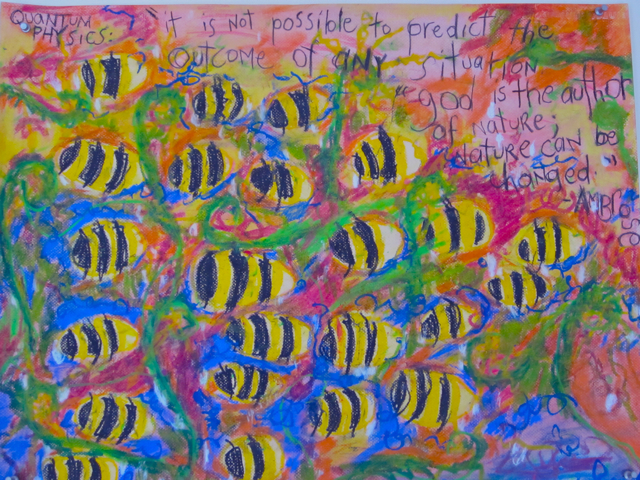
I’ve received a very nice invitation to Easter dinner on Sunday. And I’ve been invited to contribute a fruit salad to the meal. So I’ve been thinking about fruit salads and what makes a good one. I mean, most of them are pretty run-of-the-mill, right, Reader? What on earth can make you excited about a fruit salad?! So you understand my dilemma.
Well, I’ll tell you what can make a special fruit salad…HONEY! And good coconut. And good pecans. And whipped cream. So, my dear Reader, I’ve decided to whip up a wonderfully exuberant Ambrosia. Because Spring is exuberant. And Easter is exuberant. And all the world is exuberant. And the image above is not only exuberant in its colorful Easter-egg-like bees, but embedded in it is a quote from St. Ambrose, the patron saint of bees.
Legend has it that a bee landed on the infant St. Ambrose’s lip; when she flew off, she left a drop of honey on his mouth. When St. Ambrose’s father discovered the honey on his son, he took it as a sign that little Ambrose would grow up to speak gently and smoothly and with a honeyed tongue.
Reader, in this present election season, one in which our attentions have become riveted to hateful speech and vitriol and the power of language to do harm and raise ire, it’s good for us to recall the healing power of speaking gently and with a honeyed tongue. So St. Ambrose is my man this Easter. Therefore, dear Reader, I shall be making Ambrosia, a fruit salad named after our sweet-talking saint—a fruit salad with just a touch of honey…honey collected from my own bees.
Thanks to Francesca, the young artist who created this very exuberant pastel.
